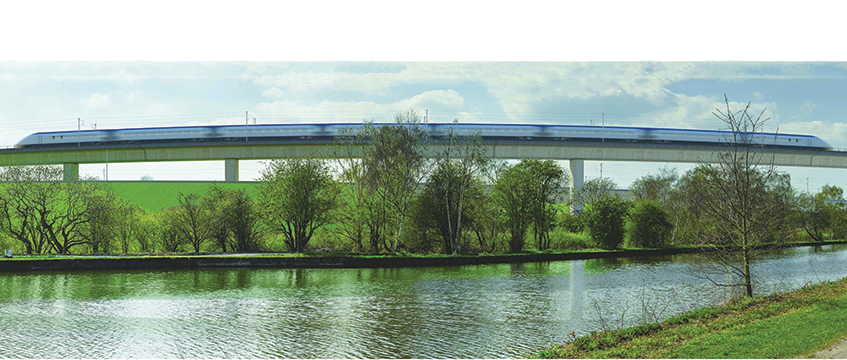Since HS2 received Royal Assent in February 2017, the project’s viability has teetered on a knife’s edge.
It started just a month later, when the first of several legal challenges was launched against the body. The award of a key contract to engineer CH2M sparked legal challenges from unsuccessful bidders, who claimed HS2 was in conflict of interest throughout the procurement, which subsequently led to HS2 to scrapping the deal.
In January this year, HS2 faced further legal threats – this time from landlords alleging that HS2 was undervaluing the central London properties that it had acquired under compulsory purchase orders.
However, this month has seen the biggest threat to the scheme so far. Following news that the budget for the scheme had ballooned from £55.7bn to £88bn, the government announced an independent review into HS2 – which could see the scheme cancelled.
With this threat of derailment, leaders in the Midlands and across the North of England have told EG of the immense repercussions that cancelling the project could have on these regions, putting key infrastructure and regeneration developments in jeopardy.
Birmingham
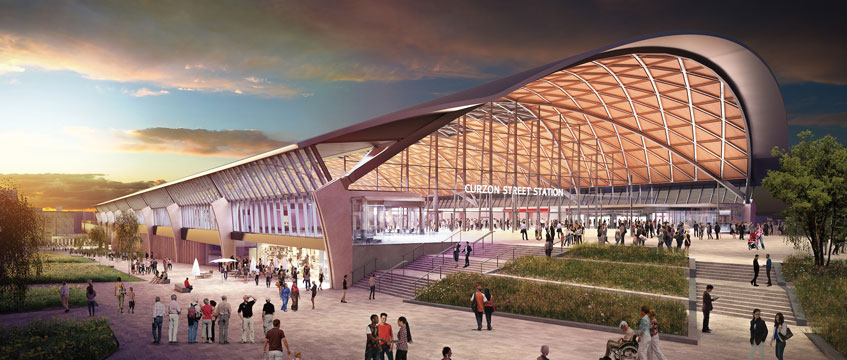
Birmingham will be the first city the HS2 line will hit, connecting passengers from Old Oak Common station in west London to Birmingham Interchange station (which will serve Solihull, Birmingham Airport and the NEC) and Birmingham Curzon Street station (pictured) in the centre of the city.
The city council ringfenced £300m of investment to pump into the city’s enterprise zones, which are government-designated areas that offer tax breaks and government support in which the local authority keeps any uplift in business rates to reinvest.
This investment was increased to £1.2bn due to the potential of scale and level of growth that HS2 could bring to the city, but Richard Cowell, assistant director for development at Birmingham City Council, told EG last month that roughly £1bn of this investment could be at risk if HS2 does not go ahead.
“When we did the enterprise zone extension and committed a further £600m of investment through the Curzon investment plan to infrastructure, and a further £186m to extend the Metro, that was all predicated on HS2 arriving,” Cowell said. “If you take HS2 away, we are not going to be in a position to have that level of local infrastructure investment, which is funded through the enterprise zone.”
Manchester
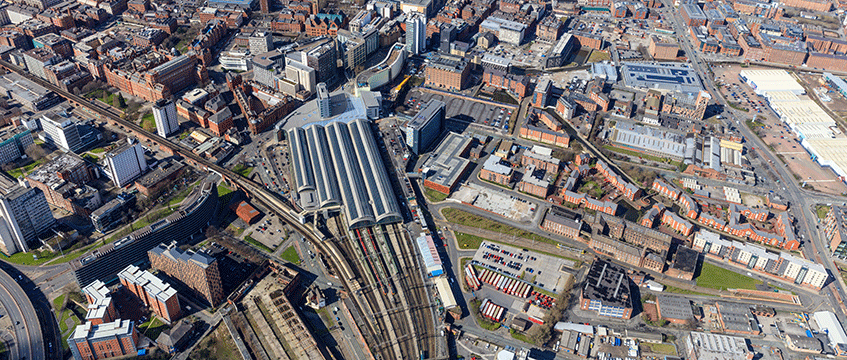
Carrying on from Birmingham, the proposed HS2 route splits just east to Junction 9, M42, creating a forked route. On the western prong, the line’s next stop is at Manchester Airport, landing next in Manchester Piccadilly station (pictured).
In Greater Manchester Combined Authority’s HS2 and Northern Powerhouse Growth Strategy, similar preparations are being made to make the most of the benefits that HS2 could bring.
Surrounding Manchester Piccadilly Station, GMCA has outlined its vision to create a new commercial district. Four major HS2 development zones have been identified – Piccadilly Central, Piccadilly North, East Village and Mayfield.
But following the announcement of the review, Manchester City Council leader Sir Richard Leese says these plans have come under threat. Should the rail line be cancelled, the consequences across the Greater Manchester area could be even greater, he says.
“If we look at the regeneration framework for Piccadilly station, which is the HS2 plan for Piccadilly station, it is more than 8m sq ft of new development, 40,000 jobs and 13,000 homes,” he says. “All of that is potentially at risk if HS2 doesn’t go ahead. And that’s only the impact on the area immediately around Piccadilly station. That doesn’t take in any account of what would happen as a result of HS2 elsewhere across the city or, indeed, across Greater Manchester.”
One potential development that Leese says could be shelved in an HS2 fallout is 2.6m sq ft of technology and manufacturing workspace that has been outlined for development in GMCA’s Spatial Framework 2019.
Leeds
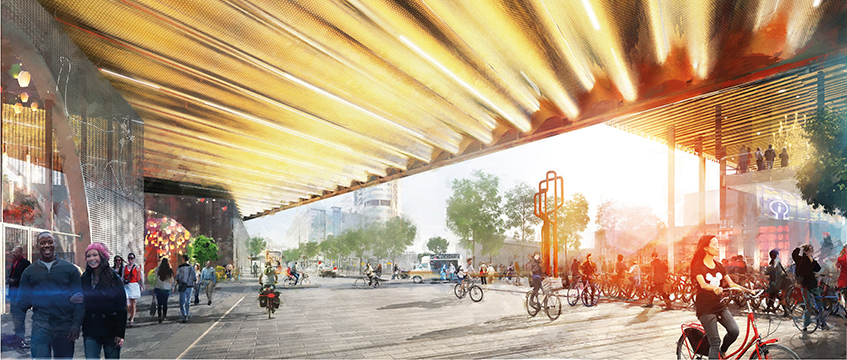
Located on the east prong of the HS2 route, Leeds is expecting to see £25 of private sector investment for every £1 of public sector funding as a result of HS2 hitting the city, says city council leader Judith Blake.
One scheme that has received particular attention from investors is the regeneration of South Bank, which will be home to the proposed HS2 integrated station (pictured). Spanning 625 acres, it has the potential to double the size of the city and provide up to 8,000 new homes.
But should HS2 be cancelled, the council will have to rethink its plans, says Blake, adding that £200m of infrastructure investment could also be at risk.
“It is bound to have a significant impact on our plans,” says Blake. “The knock-on effect is enormous as we’re looking at a situation where we’re holding on to our business rates coming in. It’s immense.”
If HS2 is cancelled, Blake says the government will need to work urgently to assess a replacement scheme.
“I don’t think you can overestimate just how negative the impact of the decision will be, in terms of confidence and our ability to reinvent the North in a way that can deliver its full potential,” she says.
Crewe
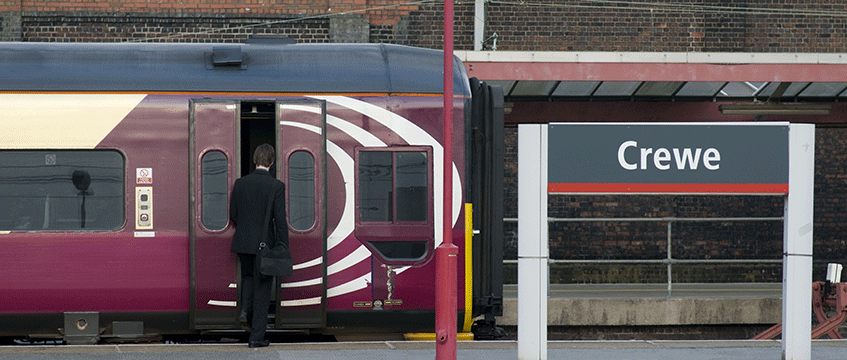
HS2 will also stop at Crewe, where a hub station will be located on the site of the existing station (pictured).
In October 2017, Cheshire East put together its draft masterplan vision for the redevelopment of Crewe, including the creation of a new commercial hub around the station, totalling more than 3.7m sq ft.
However, this work is dependent on HS2 going ahead, says Cheshire East Council deputy leader Craig Browne.
He says that should there be a long delay to HS2, it could start affecting investor intentions.
“It’s a bit like Brexit,” he says. “Business needs certainty in order to make investment decisions. At the moment, business doesn’t have that certainty.”
Wider investment impact
Even councils that do not have developments and infrastructure upgrades predicated on the delivery of HS2 are concerned about the knock-on effect of the potential binning of the project.
Wigan council leader David Molyneux says if the decision is made to cancel HS2 there will be a “severe jolt to investment plans” for Wigan and the North of England.
“What we’ve seen, because of HS2, is that there’s interest in investing in the North,” he says. “I think interest will go down without that investment. Most investment in the North comes from the South. If you restrict that connectivity between the North and South, you’ll see a difference in people’s ambitions in terms of investment for the North.”
The review is expected to be passed to government in the autumn. Until then, councils are left preparing for the possibility of shelving billions of pounds of regeneration opportunities and infrastructure upgrades.
To send feedback, e-mail lucy.alderson@egi.co.uk or tweet @LucyAJourno or @estatesgazette







